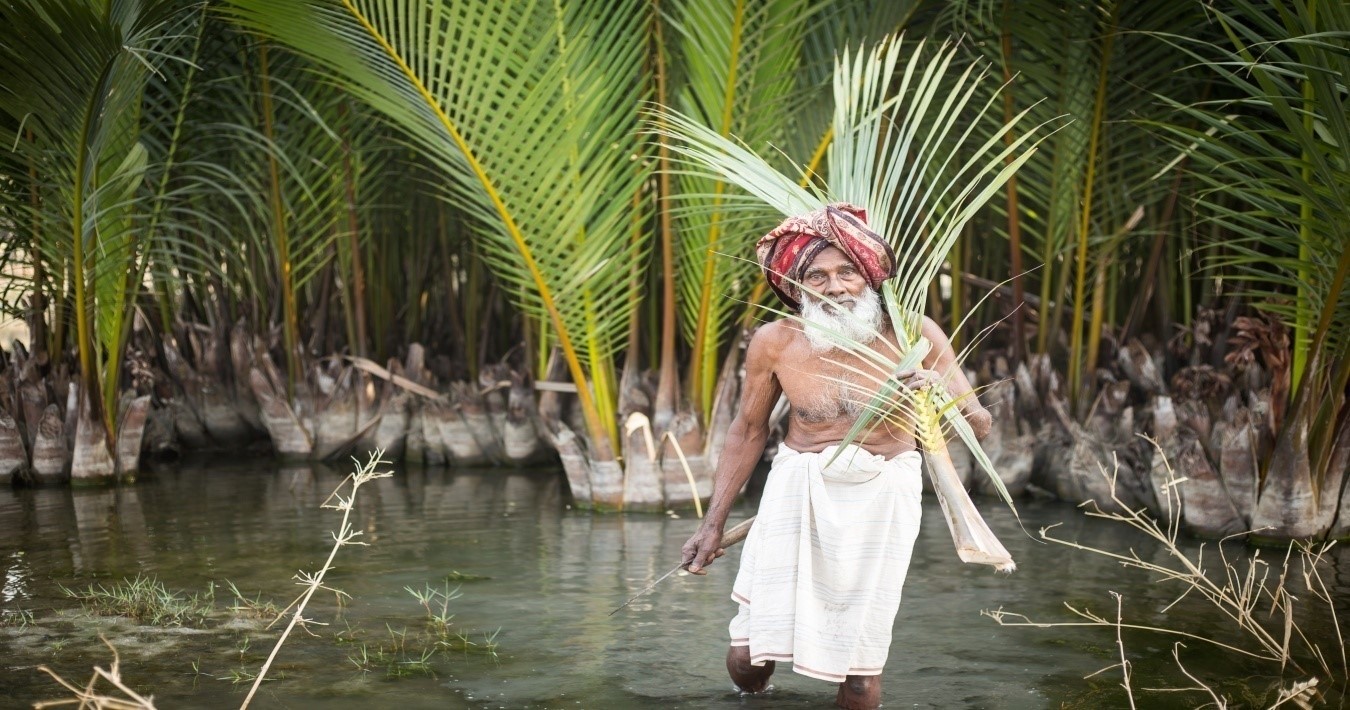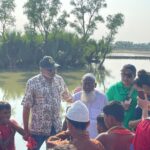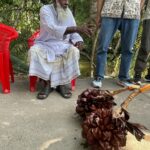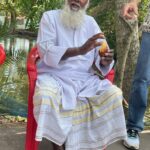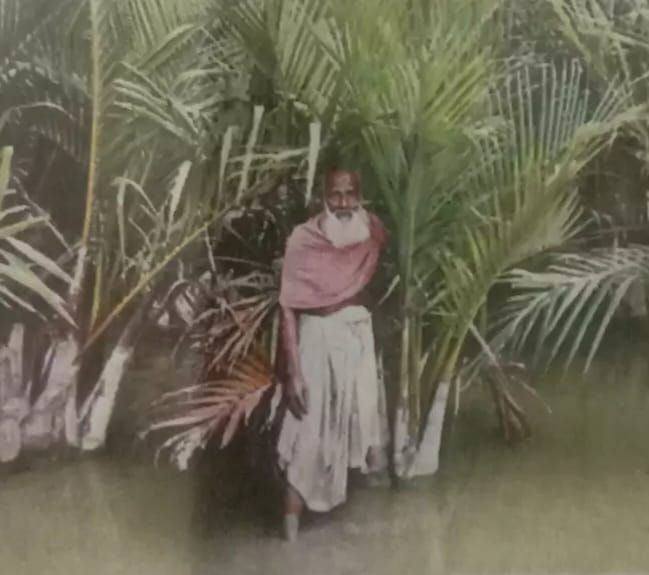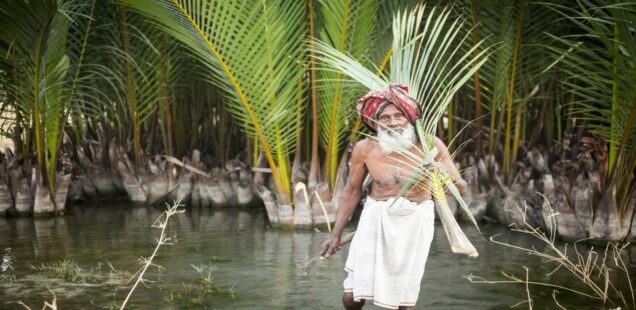
Md. Khaybar Sardar – plying a generous, catalytic role in community innovation and solidarity in the Sundarbans of Bangladesh
Mr. Md. Khaybar Sardar is honoured by the 2024 Paul K. Feyerabend Award for his innovative, generous and lasting contributions to generating and sustaining community solidarity, ingenuity and collective environmental care in the Sundarbans region of Bangladesh. An elder of the community of Koyra (Amadi Union, Khulna), Mr. Sardar is still very active as natural resource manager. Even beyond his native community he is well known as the inventor and pioneer of some integrated mangrove aqua-silviculture systems that are optimal— i.e., intensive and efficient— in using the scarce and salinity-rich available land. Mr. Sardar runs trainings on the sustainable income generation skills that are at the core of those systems, such as methodologies for the cultivation and collection of golpata (nipah palm) fruits and seeds and for the collection of mangrove honey.
Mr. Sardar dedicated much of his life to sharing with the new generations his own knowledge and experience about both the traditional and innovative resource management methods that have now become popular among neighbouring communities in the Sundarbans. The systems have improved livelihoods by generating a variety of income sources, while also helping to reverse mangrove degradation and protecting the mangrove ecosystem from erosion and other negative phenomena related to climate change.
In the past two decades, the Koyra communities have faced tremendous climate change impacts, all rendered more problematic by anthropogenic pressures like the destruction of forest mangrove to create commercial shrimp cultivation areas. Recurring cyclones have also hit hard the Sundarbans and tidal waves have damaged peoples’ homes, plots, crops, equipment, and gear, including boats and nets. Social security and civil protection programs are, in Bangladesh, inadequate and fragmented at best. Inter- and intra-community solidarity and cooperation against the unprecedented natural shocks are, therefore, simply crucial.
Around 3.5 million people are directly or indirectly dependent on the Sundarbans for livelihoods. The customary rights, knowledge and capacities of these people directly dependent on natural resource uses are hardly recognised in Bangladesh’s Forest Act. In fact, the management of national parks and World Heritage sites remains colonial in attitude, imposing top-down access restrictions and closures upon forest-dependent, marginalized communities that struggle to draw even their minimal life support from nature.
To stand stronger together and to exchange knowledge and enhance capital, three forest peoples’ co-operatives were set up in 2011, uniting a total of 350 households. The cooperatives have been successful in empowering their members, and especially women’s groups, to engage with the government and innovate their livelihood strategies, including identifying alternative sources of income. Mr. Sardar has been one of the elders who played a hugely motivational and empowering role for the younger generations in the cooperatives. He set an example, stresses the value and sophistication of local traditional knowledge and practices and supported communities to move forward with new, adaptive practices. His generous, selfless catalytic role in community solidarity is thus recognized and highlighted, hoping it will be replicated by many in the younger generations.
The Paul K. Feyerabend Foundation would like to extend its warmest thanks to Unnayan Onneshan which provided assistance and solidarity to the co-operatives in Koyra and worked with Mr Sardar for many years, and the Forests Peoples Programme, which has joined forces to honor him and support the celebrations and the financial component of the award.

